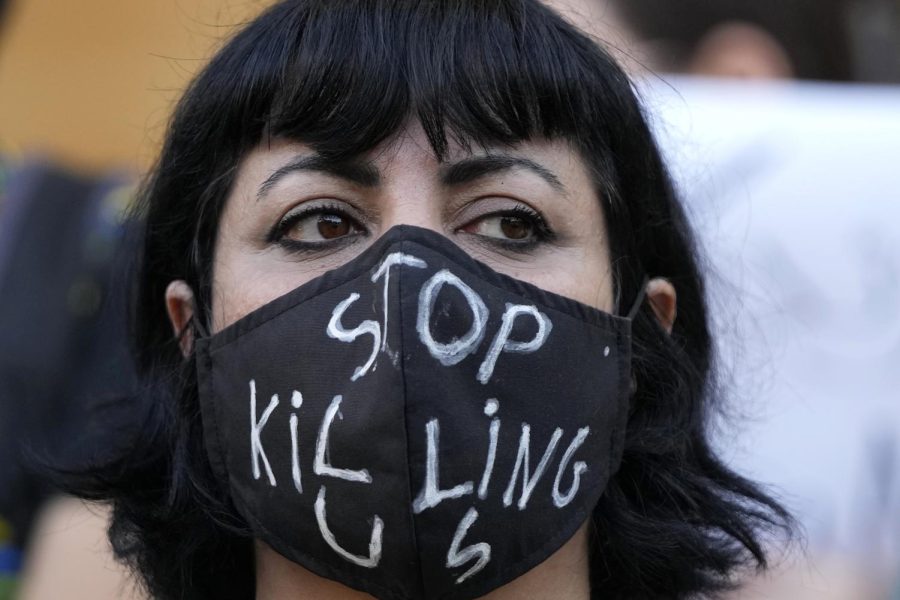Editorial | Iranian women deserve autonomy
An activist wears a message on her protective face mask that reads “Stop Killing Us” during a protest against the death of Iranian Mahsa Amini in Lebanon on Sunday.
October 2, 2022
Jina (Mahsa) Amini, a 22-year-old Kurdish woman living in Saqez, Iran, died on Sept. 16 in police custody. The morality police arrested Amini three days prior for allegedly wearing “unsuitable attire.”
Amini was arrested for improperly wearing a hijab, since her hair was visible — a dress code the morality police enforce. Many Islamic countries, which have their own version of morality policing, have strict rules regarding women’s modesty, but the degree of modesty varies.
The morality police in Iranian are tasked with enforcing that women cover their hair, bodies and discourage the use of cosmetics — but in early Islam, there was no morality police. Instead, this role became a product of morality enforcers strengthening their role in Islamic society and the interpretation of what is concerned moral, particularly in the lives of Muslim women. In Iran, the police arrived after the 1979 Iranian Revolution when citizens overthrew the Pahlavi dynasty, allowing Ayatollah Ruhollah Khomeini — a leader of one of the factions during the revolt — to assume power under the newly established Isalmic Republic.
Iranian authorities have claimed that Amini died from a heart attack, denying accusations that she experienced blows to the head while in custody. Amini’s father said she did not suffer from a pre-existing heart condition. The Iranian government’s deceit about Amini’s death and refusal to take responsibility eventually sparked an eruption of protests in Tehran, across Iran and even around the world.
And let’s be clear — the conflict is ultimately removed from the teachings of Islam and instead is the result of an oppressive government’s role in manipulating society and people’s presentation within it. Whether a woman chooses to wear a hijab is a personal choice that outside influence should not dictate. Many hijabi women have faced harsh discrimination at the hands of non-Islamic society, ultimately illustrating that the situation arose out of prejudice and a disregard for personal autonomy.
But Westerners — make sure not to criticized the entirety of Islam while standing in solidarity with Iranians governed under their authoritative government. It is not an outsider’s place to tell a community or its members how to act. Instead, the world must see all women — and people — as deserving of making personal choices.
Overall, women’s rights and equity is not about standardizing the ways in which society treats people. Instead, it is about honoring a person’s humanity and seeing that they are deserving of respect and dignity when making personal decisions that don’t harm others.
Whether Amini chose to wear a hijab has nothing to do with her personal worth and should never have contributed to the way she was treated by anyone, especially the morality police.
Amini should still be alive. Women have long faced oppression and discmriniation all around the world, in almost every single society. There have been many women like Amini throughout history and there will continue to be more victims if oppressive governments govern people’s bodies, stripping them of their right to choose.



